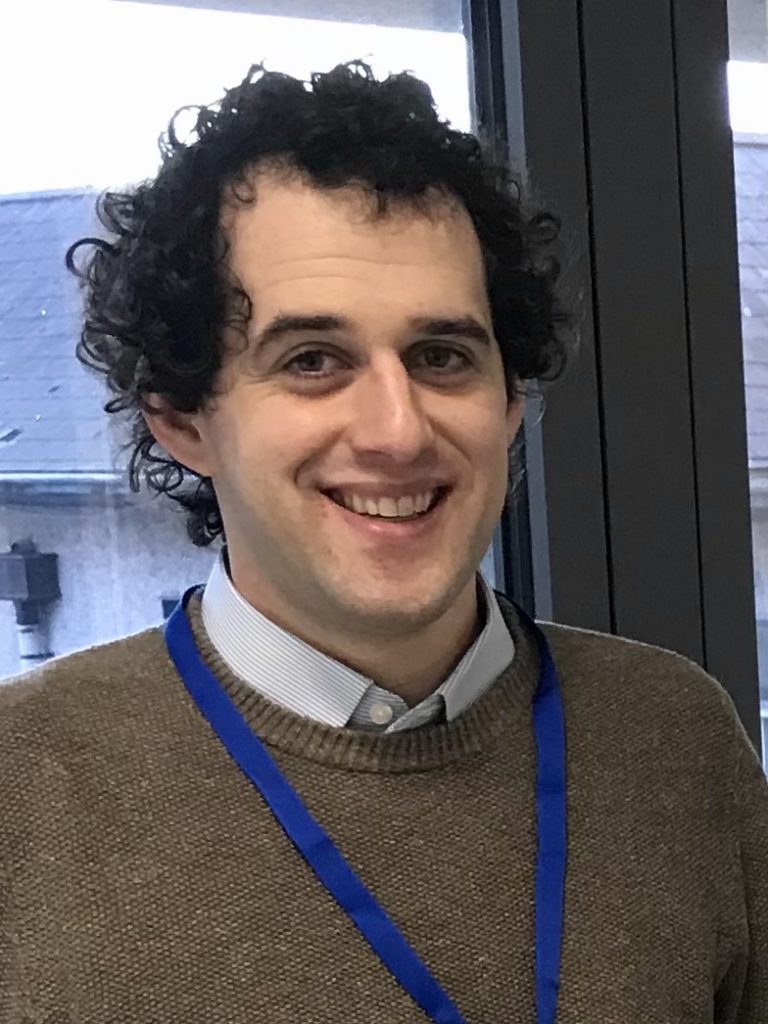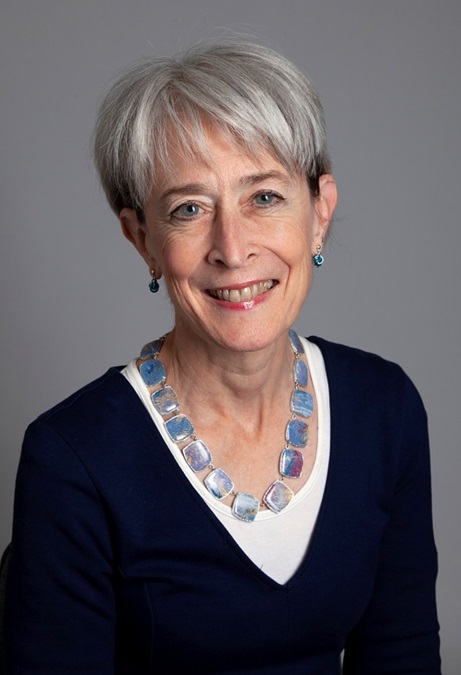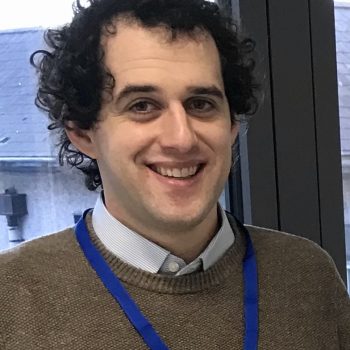From physiotherapist to researcher: a new and exciting research career for Peter
‘Dr Hartley will see you now’ is a phrase that still sounds unfamiliar to physiotherapist, Peter Hartley. For the last 10 years, Peter has been busy working both clinically and academically to achieve his doctorate.
His extensive PhD research investigating muscle wastage in patients while in hospital, is just the beginning of an exciting future combining research with patient care. Here Peter shares his story and best tips for starting a career in research as an Allied Health Professional.
Going right back to the beginning, how did you start your career in research?

I completed my physiotherapy undergraduate degree at the University of East Anglia (UEA). Part of that was doing assignments and literature reviews, which was something I enjoyed, but in order to go into research, I was advised to have some clinical experience before pursuing it any further.
In 2011 I applied to do an NIHR Clinical Research Masters at the University of Hertfordshire. I hadn’t done any research activities in two years since my undergraduate studies, so it was nice to go back and do some academic work.
After that, I wasn’t sure what to do next. I was still seeing patients in the hospital, but I started questioning our current clinical practices – were there ways to prevent certain outcomes? Could I find new ways to improve patient care? I felt the best way to do that was via research.
I started working with researchers at the University of East Anglia to develop a doctoral application for the NIHR and focus my research in stroke patients. I spent a lot of time putting my application together, but unfortunately it was initially unsuccessful. However, the application experience gave me the skills and knowledge to know what to do for next time.
You undertook an NIHR Cambridge BRC and ACT fellowship, how did that help you?
At that point, I was moving my area of speciality and I began working in elderly medicine, so my research focus changed to match my clinical work. I started looking at how physiotherapy was beneficial to people on these wards and was this something I could investigate? I decided to apply for an NIHR Cambridge BRC and Addenbrooke’s Charitable Trust (ACT) fellowship and I was successful.
The BRC and ACT fellowship provided me with reserved time away from my clinical work to write research papers, carry out service evaluations, literature reviews, conduct PPI (patient and public involvement) work, attend conferences, work with the NIHR Research Design Service and think about my research proposal. It gave me the dedicated time and support I needed to put a strong doctoral application together.
The hardest part was deciding the actual research question. It was during my service evaluations and looking at the outcomes in older people who did not make a full functional recovery when leaving hospital that made me want to study this issue further. There was quite a bit of work conducting literature reviews to develop the argument to undertake research into this area and why it was important for patients. I found that as I was developing my proposal, my research question changed a lot.
As part of my application, I had to create a training programme and demonstrate how I would conduct the research which I enjoyed doing. Then I had to put together the protocols and methods that I would use to answer the research question. Finally, I had developed my idea and I was able to put my proposal forward and applied for my doctorate fellowship. I was fortunate that my application to the Dunhill Medical Trust was accepted.
Before my BRC and ACT fellowship, managing my clinical work and research applications was very challenging. The BRC and ACT fellowship gave me the protected time away from my clinical role to help me prepare and gather the evidence I needed for my doctorate application, without it I wouldn’t be where I am now.
What did your research study involve?
When I received my Dunhill Medical Trust fellowship I was working on my research full time. The first year I was studying, writing and doing a lot of reading, but in my second year I was recruiting patients to take part in the study and it was like being back in my clinical role.
With the support of the CRN (Clinical Research Network), I carried out an observational and an intervention study at Addenbrooke’s Hospital. The observational study had 70 participants who were patients on medical or geriatric wards and had unplanned admissions.
During the first week of their hospital admission I assessed patients’ strength every day and looked at their ability to move and walk, and measured how physically active they were during their hospital stay. Then 4-6 weeks after their discharge, I followed the patients up at home.
In the intervention study, 15 patients were randomised into two groups. I had planned to recruit more participants, but the trial then had to finish early because of Covid. Both groups were seen twice a day by a physiotherapy assistant. If they were in the intervention group, they were asked to perform simple strengthening exercises which included many repetitions of standing up and sitting down, which were progressed as the participants strength increased. Participants in the control group performed gentle stretches with the physiotherapy assistant.
What did you find out?
Before undertaking the research we knew that a large percentage of older adults have a reduced ability to manage their normal day to day activities when they leave hospital, compared with before they became unwell. We hypothesised that one of the main reasons for loss of muscle strength in hospital was due to inactivity.
We found on average, people lost around 10% of their muscle strength during their hospital stay. The more active someone was in the hospital, the more strength they retained. We also noticed the more frail someone was, the more their muscle strength reduced.
Were there any surprise findings?
The research did confirm our hypothesis, but what was interesting was that most of the patients had not recovered their muscle strength when I followed them up at home. There were also a few participants who were very mobile and independent before they were admitted to hospital and they were quite unwell in hospital, but we believed that they had made a good recovery and would resume their previous routines soon after they left hospital. However, we had not appreciated the impact that their hospital stay had had on their confidence, and when I visited them 4-6 weeks after they had been discharged home, they still had not left house in all that time. The impact on confidence was something I hadn’t given enough attention to before, but after that experience we decided to measure it with every patient.
With regards to the exercise study, we found patients supported the study, but after interviewing the participants, we identified some barriers to exercising in hospital. We discovered that far fewer of the exercise sessions were completed than we had anticipated. That was surprising because we assumed people who had signed up would be quite motivated to take part. It made us think about how we could produce a suitable exercise programme in the future and highlights the need to speak to patients or PPI groups to find out what will work best, and consider all the different factors that can affect a patient’s ability or motivation to exercise.
What happens next?
Our research has shown there is more work that needs to be conducted to improve muscle function in older hospital patients, but we’re hopeful this could be the beginning to making some changes in the physical activity of patients when they are admitted to hospital. It made us think about a couple of other things too. Could we work with patient groups and create an appropriate exercise programme for inpatients that is beneficial and acceptable to patients? Could we influence behaviour and encourage more activity and exercise on the ward in order to prevent loss of strength? Do we investigate other factors, such as building confidence for mobility when patients return home? And finally, investigating the economic factors of loss of muscle condition during hospital stays. Muscle wastage is quite important to our physical health – is it a bigger problem in the community after discharge? If we can consider exercise and reducing muscle loss on the ward, could it free up beds in a hospital because we are able to discharge patients who are more mobile? Would it prevent more people being discharged into care homes for short stays because their independence had increased? These are some of the areas we could explore in the future.
I’m now applying for various fellowships and grant awards for research funds to investigate these topics. I will also be returning to clinical practice and hopefully one of my applications is successful to let me continue my academic development.
What is it like having doctor in your title?
It’s still very odd having this title, I’m not used to the name yet and graduating was surreal because it was during COVID and I couldn’t attend the ceremony.
Looking back though, it has been a fantastic training opportunity and I have loved every minute. I would do it again in a heartbeat, it’s a hugely rewarding experience despite the challenges and rejections in the early days. The funding from the BRC and ACT fellowship was game-changing for me, it was so important. It gave me the time to put my application together and access the support I needed, I don’t think I would have been successful without it.
What advice would you give someone who was considering a research career?
Anyone who is thinking about going into research should do it. There is so much support out there if you’re willing to put the time in. I would say have a research question ready. Don’t worry if it changes a lot, it’s quite common as you’re developing your proposal.
If you don’t have a research question yet, think about the topic you would like to explore. Make use of the resources around you, speak to people, go to the library and do some reading to find out what research has already been done.
Contact your local Research Design Service, their advice is invaluable and they can help put you on the right path. We’re lucky in Cambridge, not only do we have good mentors but facilities such as the Clinical School library where I could work, join courses and seek advice. Look at funding, particularly the BRC and ACT fellowship that gives you the time to put your research application together.
Even though you may get knocked back a couple of times, don’t take it to heart. I found with rejection I learnt a lot about the application process and that is something that has been really useful and helped me with the next application.
Find yourself some good support and a mentor. Here in Cambridge I was supervised by Professor Christi Deaton, who is helping more nurses, midwives and AHP’s begin their research career. From my fellowship to now, Christi has been a great source of help with my applications and supported my doctoral studies.
My other doctoral supervisor, Professor Roman Romero-Ortuno, provided lots of support right from the beginning with my applications, publishing my first papers and helping with my doctoral and post-doctoral work. I very much doubt I’d be here without their help, and they have both been incredible.
“And be prepared!”
A lot can change along the way. When my research was accepted I thought I could just get everything organised and begin, but I found out that there can still be hurdles, even when the study has been setup. I had planned for a large number to take part, but I then found it was actually quite difficult to recruit people to the study for a number of reasons; patients discharge dates would change, people withdrawing from the study or people not wanting to take part because they had other things to consider while in hospital. It took me twice as long to get enough people enrolled in the trial than I expected. So, I had to go back and adjust my protocols that would fit in line with the study.
After making some changes the study took off. It was going well until the pandemic, where we had to pause the study and I went back into clinical practice for a while to support the hospital.
From my experience, it’s best to be prepared for the obstacles, think about every eventuality that could come your way, a lot can change on your research journey.
Looking back since then, it’s been a challenging road but it has been worth it, I wouldn’t change a thing and I’m looking forward to what the future holds.

Professor Christi Deaton, Professor of Nursing, who was Peter’s mentor said: “Peter is a shining example of what nurses, midwives and AHPs can achieve with support. His research is important for improving the outcomes of acutely hospitalised older adults and changing practice related to helping patients stay active in hospital.
“In addition to completing his PhD he has published several papers, been invited to speak internationally, led a Cochrane Collaboration Systematic Review, and is developing his post-doctoral research and collaborating with a company to improve activity monitoring. We will be hearing more from Dr. Hartley in future!
“Through our HEE (Health Education England) funding we have a website that has much information about clinical academic careers, funding, fellowships and the regional internship/bridging fellowship programme that I co-lead with Prof Tina Jerosch-Herald at UEA.”



